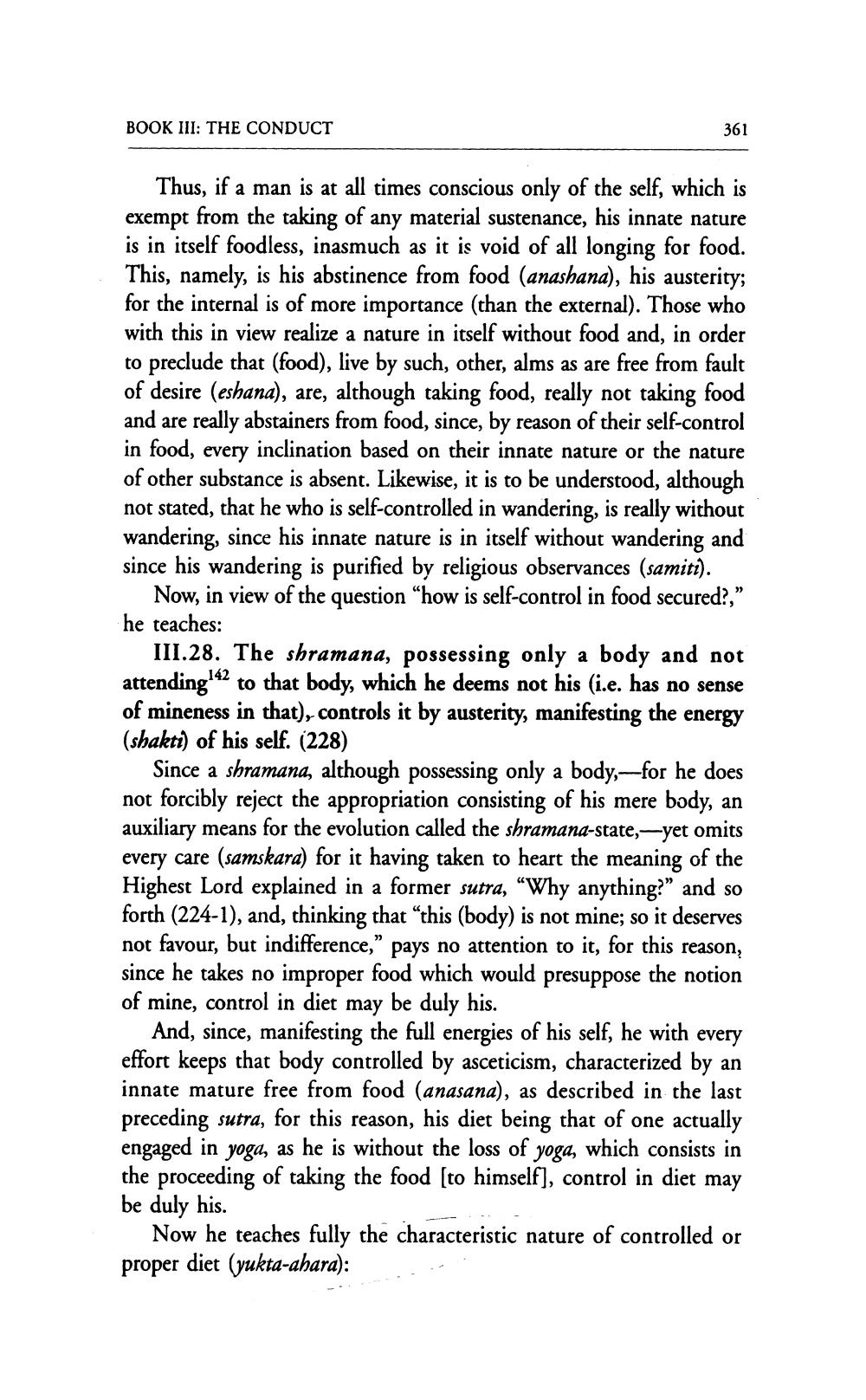________________
BOOK III: THE CONDUCT
361
Thus, if a man is at all times conscious only of the self, which is exempt from the taking of any material sustenance, his innate nature is in itself foodless, inasmuch as it is void of all longing for food. This, namely, is his abstinence from food (anashana), his austerity; for the internal is of more importance (than the external). Those who with this in view realize a nature in itself without food and, in order to preclude that (food), live by such, other, alms as are free from fault of desire (eshana), are, although taking food, really not taking food and are really abstainers from food, since, by reason of their self-control in food, every inclination based on their innate nature or the nature of other substance is absent. Likewise, it is to be understood, although not stated, that he who is self-controlled in wandering, is really without wandering, since his innate nature is in itself without wandering and since his wandering is purified by religious observances (samiti).
Now, in view of the question “how is self-control in food secured?,” he teaches:
III.28. The shramana, possessing only a body and not attending !42 to that body, which he deems not his (i.e. has no sense of mineness in that), controls it by austerity, manifesting the energy (shakti) of his self. (228)
Since a shramana, although possessing only a body,--for he does not forcibly reject the appropriation consisting of his mere body, an auxiliary means for the evolution called the shramana-state,—yet omits every care (samskara) for it having taken to heart the meaning of the Highest Lord explained in a former sutra, “Why anything?" and so forth (224-1), and, thinking that “this (body) is not mine; so it deserves not favour, but indifference,” pays no attention to it, for this reason, since he takes no improper food which would presuppose the notion of mine, control in diet may be duly his.
And, since, manifesting the full energies of his self, he with every effort keeps that body controlled by asceticism, characterized by an innate mature free from food (anasana), as described in the last preceding sutra, for this reason, his diet being that of one actually engaged in yoga, as he is without the loss of yoga, which consists in the proceeding of taking the food (to himself], control in diet may be duly his.
Now he teaches fully the characteristic nature of controlled or proper diet (yukta-ahara):




